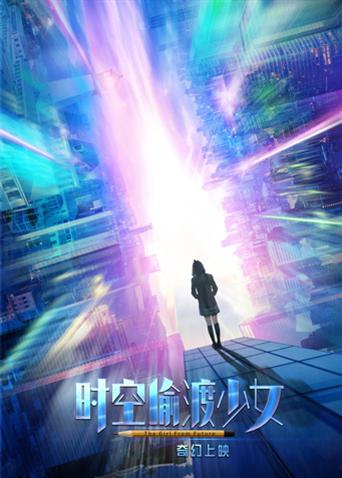幽情
幽情

回复 :本片包含的四个故事是道德力量与死刑这两个关键主题的变奏曲。这就提出了一个问题:在专制政权及其看似不可避免的威胁下,个人自由能在多大程度上得到表达?
回复 :1920年代,北平。在一次军阀寿宴棋会上,日本围棋高手松波(三国连太郎 饰)与江南棋王况易山(孙道临 饰)相遇。无意中松波发现况子阿明(沈冠初 饰)天资聪慧,有意收其为徒,松波刚在“天元”位摆下一子,不料,况易山被突然登门的警察抓走。松波救出况易山后,自己归期已到,留下那 盘没下完的残棋。几年后,况易山变卖家业,送子赴日。临行前,他将写有“奋飞”二字的折扇交给儿子,嘱其学好棋艺,日后振兴祖国棋坛。1937年,日寇进行全面侵华战争,已取得“天圣位”的阿明拒绝日当局要他加入日籍的要求,在决定逃回国时被日军杀害。在无锡的况易山,也因拒绝与日军大佐对弈,遭受巨大不幸和屈辱......
回复 :Siddartha (Dhritiman Chatterjee) is forced to discontinue his medical studies due to unexpected and brutal death of his father. He has to now find a job in stead. In one job interview, he is asked to name the most significant world event in the last ten years. His reply is 'the plain human courage shown by the people of Vietnam', instead of the expected - man landing on moon. The interviewer asks is he is a communist. Needles to say that he does not get the job.He reaches a coffee shop where he is offered to work for the communist party. When he does not show any interest the party leader tells him about an opening for a medical representative. To escape from the heat and have a snooze, he goes in to a cinema. As a government propaganda newsreel is being shown before the feature, a bomb explodes in the cinema hall. In the stampede that follows, Siddartha, breaks his watch. He goes to a watchmaker but he cannot afford the repairs.Waiting to cross the road, he notices a sexy girl. He drifts back to his days as a medical student in a flashback. The professor is explaining anatomy of female breast. Many flashbacks and dreams occur to Siddartha through the film.On his way to hostel, he has an encounter with some hippies. Along with an ex-classmate, he goes out to see a porn film but to their disappointment, the film turns out to be not-so-pornographic.In such constant wandering in a Calcutta, disintegrated relationships with his sister and a Naxalite (militant communist) brother, his friendship with Keya is only thing that keeps him sane.Keya is a simple girl. They enjoy each other's company but they cannot make any commitment to each other due to the circumstances.After yet another attempt at a job interview, Siddartha leaves the big city to take a modest job of a salesman in a far off small town. He writes to Keya that he still cherishes their relationship. And that he has heard that bird call again but this time it is for real, and not his mind. After completing the letter, he comes out to the balcony of his modest room. The bird calls again. He also hears the sombre chants of a funeral procession. As he turns to the camera, the picture is frozen.This is the first film of the Calcutta Trilogy. The other two were and Seemabaddha (Company Limited, 1971) and Jana Aranya (The Middle Man, 1975). All the three films study the effect the big city of Calcutta has on the educated youth and the price it extracts from them.The seventies were a difficult period for India and West Bengal. The Corruption was rampant; the Naxalite movement had created havoc in Calcutta. In fact, they had turned parts of Calcutta into 'liberated zones'. By the time the Naxalite movement died down, in 1975, Mrs. Indira Gandhi (then, Prime Minister of India) suppressed the fundamental rights and declared "Emergency" for her own political survival. Her son, Sanjay Gandhi became a dictator of sorts without any official designation. The opposition leaders were thrown into prisons.About his social responsibilities as a filmmaker, in an interview with Cineaste magazine, Ray commented, "You can see my attitude in The Adversary where you have two brothers. The younger brother is a Naxalite. There is no doubt that the elder brother admires the younger brother for his bravery and convictions. The film is not ambiguous about that. As a filmmaker, however, I was more interested in the elder brother because he is the vacillating character. As a psychological entity, as a human being with doubts, he is a more interesting character to me. The younger brother has already identified himself with a cause. That makes him part of a total attitude and makes him unimportant. The Naxalite movement takes over. He, as a person, becomes insignificant."In a letter to Seton in 1970, Ray wrote that Pratidwandi was the most provocative film he had made till then. The film is said to have evoked extreme reactions. "People either loved the film or hated it", Dhritiman Chatterjee told Andrew Robinson, Ray's biographer.

